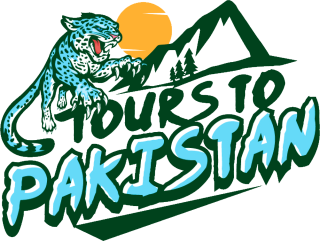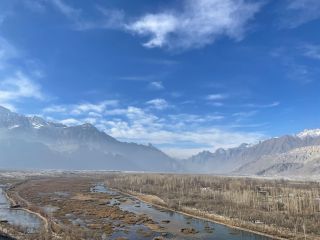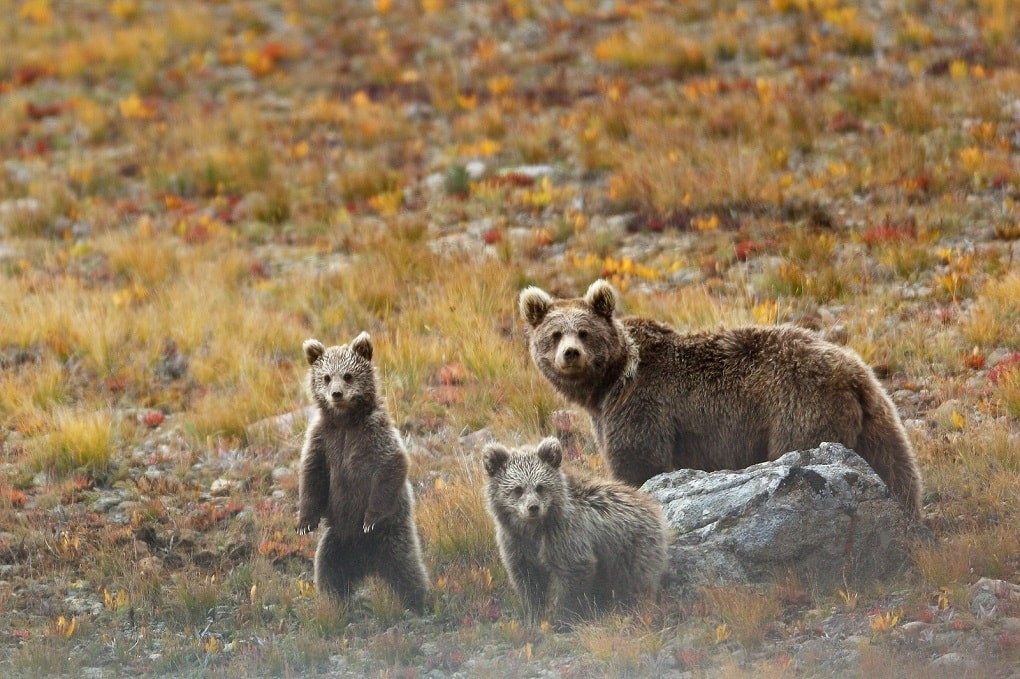
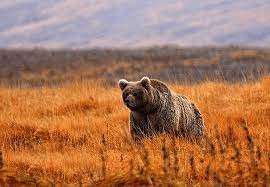
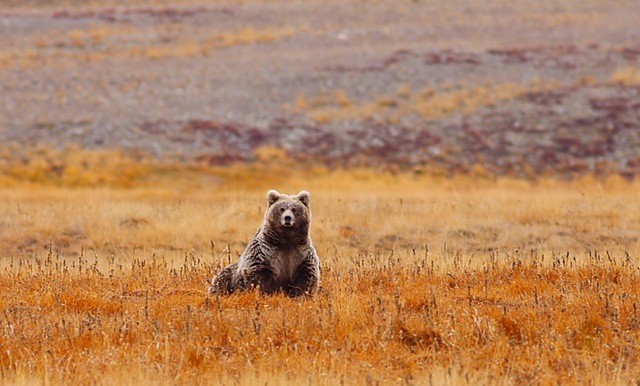
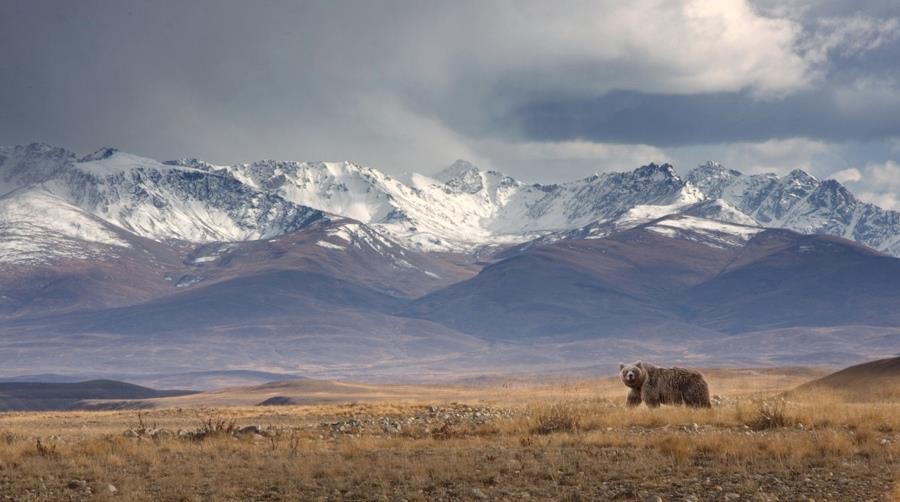
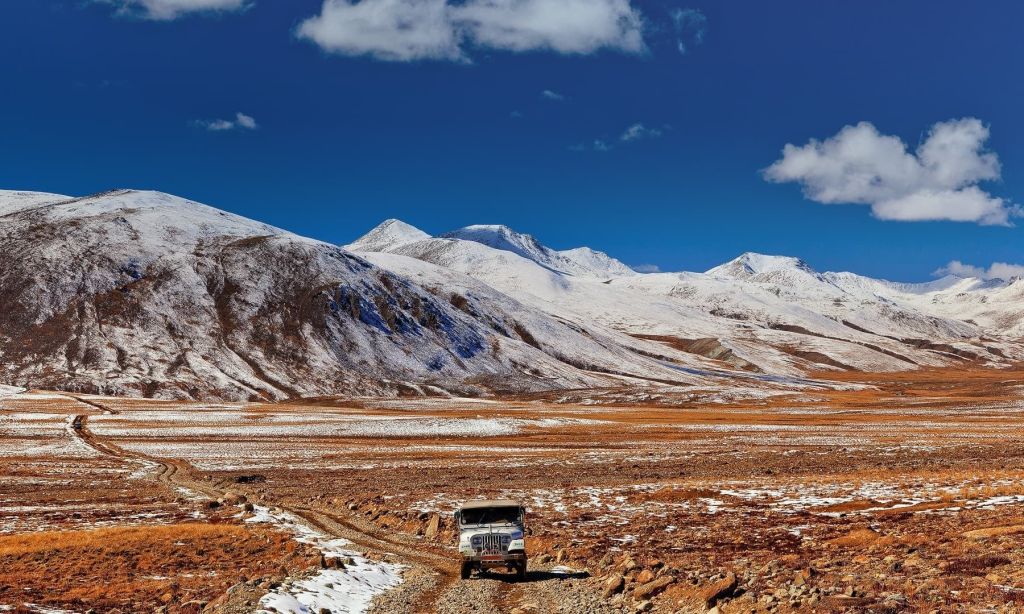
Next to our two snow leopard tracking tours, we also offer a camping tour in Deosai National Park which is south of Skardu, in the north of Pakistan. The Deosai plains are located over 4.000 meter above sea level. It’s over 843 km2 and hosts many different animals such as Himalayan Ibex, Eurasian lynx, snow leopard, golden marmot, grey wolf, red fox, mountain weasel, cape hare, urial, markhor, falcon, snow cock, griffon vulture, golden eagle, pika, Himalayan musk deer, sparrowhawk, lammagier vulture, kestrel and others.
Our tour starts from Skardu and we will be in the park for a full five days before going back to Skardu to optimize our chances to spot and photograph the Himalayan brown bear while being on the lookout for other mammals and birds. The best time to see them is between the end of May until the end of October. If we go in June or September-October the park will also be quieter than during July – August when there are local tourists. Between the end of October and April/May the bears are in hibernation in caves they built. Our tours are run by specialists who have been tracking animals for over four decades in Gilgit-Baltistan and Wakhan Corridor National Park in Afghanistan. They know the area like the back of their hand and know the behavior of the animals and are your best bet to increase your chances to spot them.
The Himalayan bear has red-brow-sandy colored fur and is a subspecies of the brown bear and is quite different from other species. It is found in the Himalayas of northern Pakistan and Kashmir. The total number of brown bears is unknown and there are about 35 – 40 bears in Deosai National Park, which has been created to protect the bears after they were almost wiped out due to trophy hunting. There are around 7 populations spread over the region.
The Himalayan brown bear is an omnivore, he eats grasses, roots and various plants, but also insects and small animals. Sometimes they even attack sheep or goats.
We at Tours To Pakistan offer a tour to Deosai National Park to track bears between the end of May until the end of October, before they go into hibernation. If we are lucky we can see them within 3 or 4 days, but it’s safer to stay up to one week. You will also have the chance to see golden marmot, Himalayan Ibex, red fox, golden eagle and others. We will camp and eat simple local meals during our tour. At night we can light a campfire and enjoy the silence and serenity of the park.
Itinerary:
Day 1: Arrival in Skardu and overnight in local hotel, meeting up with the team.
Day 2: Drive to Deosai National Park (two hours) and start your day with exploring the park and searching for wildlife.
Day 3 – 6: Exploring and hiking in Deosai National Park.
Day 7: Back to Skardu.
We can also arrange to add an additional tour to see Kashmir flying squirrel and western flying squirrel, the latter being very rare, only home to Pakistan and very hard to see. If you are interested in this, please contact us.
There are flights from Islamabad to Skardu, although they are sometimes canceled. In this case it takes one and a half day to drive. So please, keep this in mind and add four buffer days and also an extra day for PCR-testing in case you need this. Let us know if you would like to arrange overland transport through us.
Includes:
– Professional English speaking guide with years of experience
– Daily park entrance fees and camping permits
– Accommodation in Skardu on the first and last night
– All meals during camping
– Transport in a comfortable 4×4
Price:
– 1 person: 2.999 usd
– 2 persons: 1.799 usd per person
– 3 persons: 1.299 usd per person
Our wildlife experts:
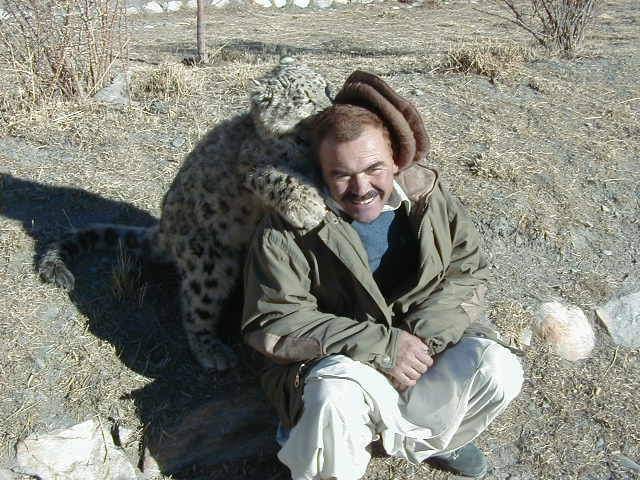 | Mr Ali is THE snow leopard authority of Pakistan and has been actively researching and tracking snow leopards in Pakistan for over four decades. He lives in Sost which is close to the home of snow leopards and is out tracking snow leopards every day together with his son Abul. Together they have helped numerous researchers, wildlife photographers and wildlife enthusiasts successfully finding snow leopards, but also other animals such as wolves, foxes, ibex, urials, markhors, etc. From 2007 to 2015 he worked with the WCS in conservation and he also worked as conservator in the Wakhan Corridor in Afghanistan. |
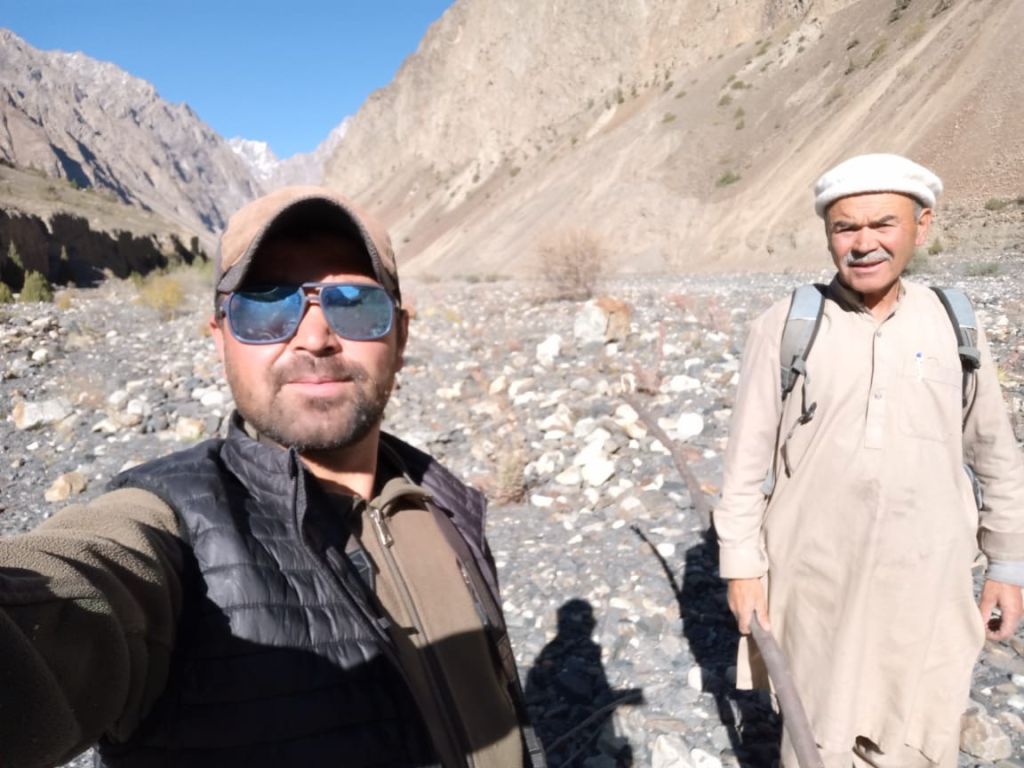 | Abul is 24 and from Sost near Khunjerab National Park. As he’s the son of Ali he has been in contact with wildlife his whole life. He has been actively tracking and learning the trade from his father since 2018 and is already a skilled spotter with a lot of knowledge on snow leopards and other wildlife of Pakistan. |
